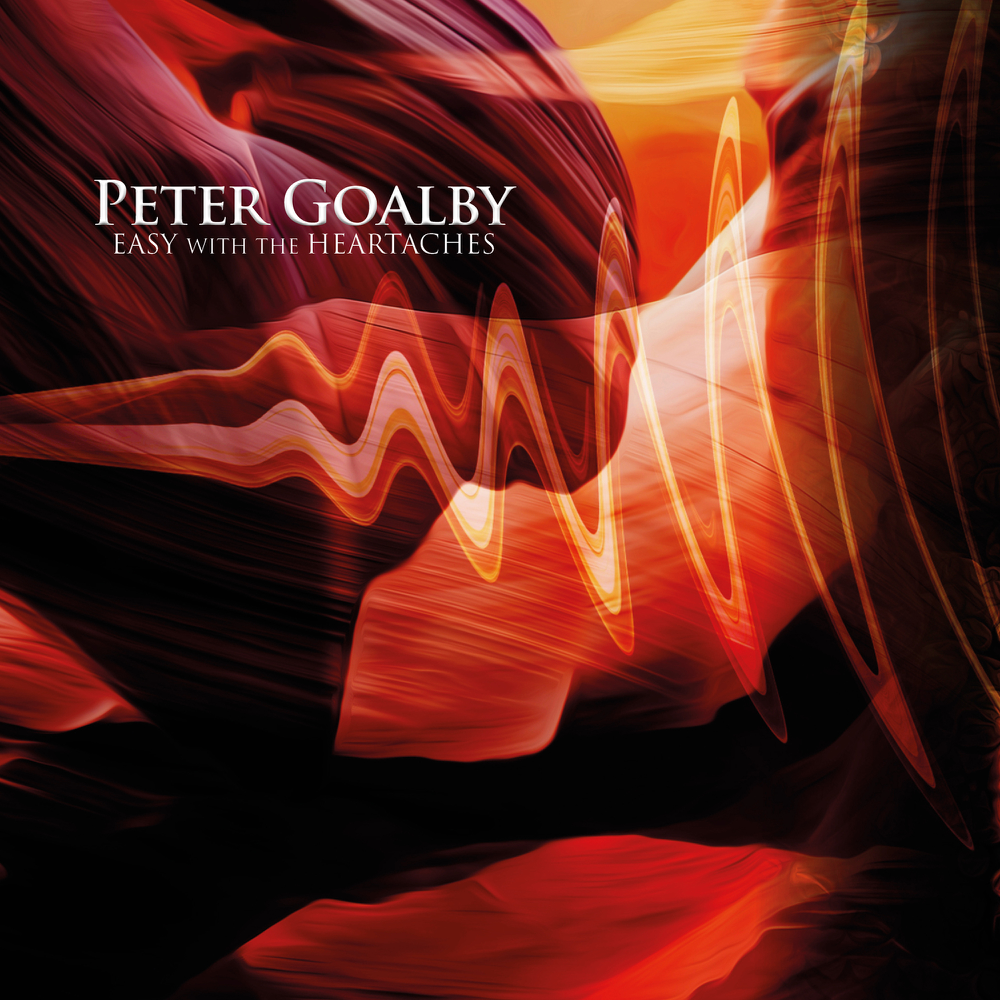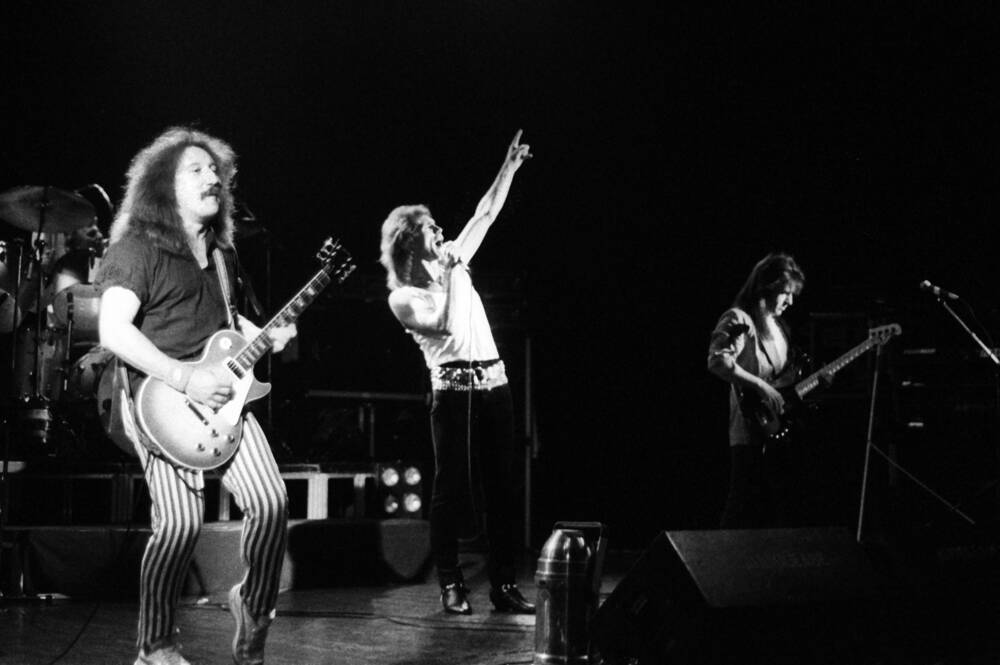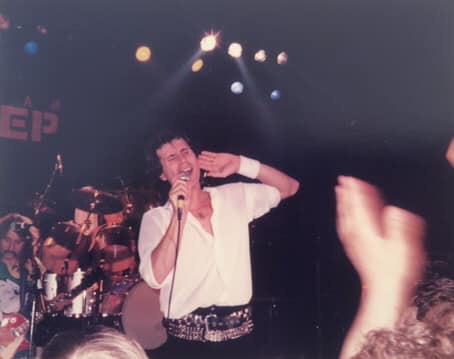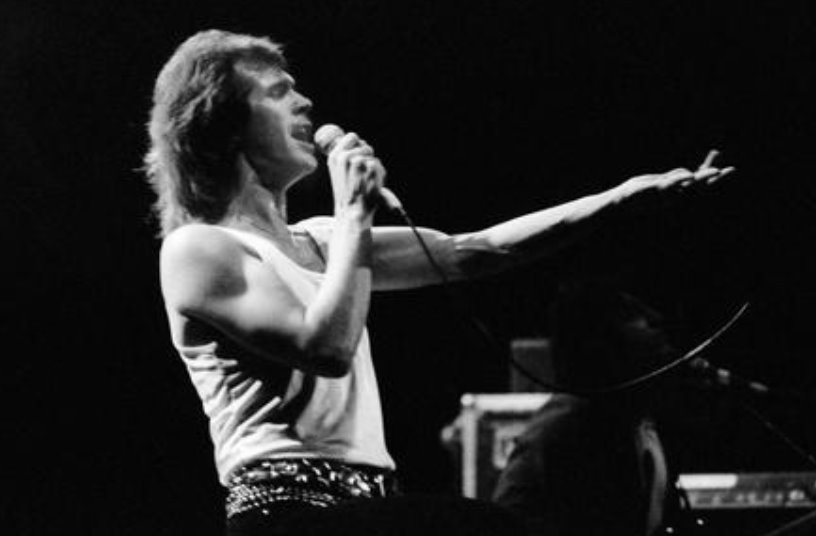All images courtesy of Glass Onyon PR

Recently, we had the pleasure of speaking with legendary Trapeze, and Uriah Heep frontman, Peter Goalby. Among other things, we touch on what he’s been up to during the lockdown, his early career with Fable, recording and touring with Trapeze, his time with Uriah Heep, his new record, and what he’s looking forward to the most once COVID-19 breaks.
If you would like to learn more about Peter Goalby, and his long-lost record, Easy With The Heartaches, head here to score your very own copy. Once you’ve done that, check out this interview with Peter. Cheers.
Andrew;
Peter, I appreciate you taking the time today. How have you been holding up over the last year or so? What have you been up to?
Peter:
We have been OK. We have horses, so we are always busy. We have a TV channel here called Sky Arts, lots of 60s 70s 80s 90s music. I was watching The Eagles live last week. I said to my wife, “Look at the size of that gig, it was huge.” After a while, I realized it was the LA Forum. I said, “Wow, I did that gig.” [Laughs].
Andrew:
Before we dive into your professional career, let’s go back a bit. What first got you hooked on music?
Peter:
I just always loved the music — loved it. I had a plastic Elvis Presley guitar. It started right there.
Andrew:
Who were some of your early influences?
Peter:
I have always loved Dusty Springfield, Tom Jones, The Walker Brothers, and The Beatles.

Andrew:
Let’s talk about recent events. Tell us about your new record, Easy With The Heartaches. This is some previously unreleased material, no? Are these the rumored to be long-lost recordings from 1990? Tell me why you chose to unearth it now. What can listeners expect?
Peter:
My 1990 unreleased Peter Goalby record is in fact the same record as Easy With The Heartaches. One and the same! The songs on my “new” 30-year-old album, Easy With The Heartaches, were written after I quit Uriah Heep. It’s strange, but I suddenly found myself in the zone. I was writing some great songs, but getting more tired of the knockbacks in the music industry. So, I finally gave up music for good. That was 1992, I think. I was asked to write something for the sleeve notes for a Trapeze compilation album two years ago. I did two albums, Hold On, and Live in Texas: Dead Armadillos. Malcolm Dome was the journalist who said I must release my songs, that’s how it started with this album. Malcolm sadly passed away last week, so he did not get to see the release. My Album has been bootlegged twice over the years, and the copies are really poor quality. Someone said to me that when I pass away, someone will buy up my songs and release them, so, I thought I will do it now, and make sure it sounds as good as it can.
Andrew:
In terms of lyrical themes, what spaces and places do you prefer to explore the most, and why?
Peter:
Some of the songs were written with other artists in mind, for instance, the title track “Easy With The Heartaches,” I wrote for Tina Turner. I can just picture her singing that song but, she did not do it. I don’t know whether she ever even got to hear it. I don’t know.
Andrew:
Let’s go all the way back to the beginning now, and talk about Fable. The group only recorded one record in 1973 and has been sadly overlooked. If you can, take me through the formation of Fable, and the recording of that 1973 record. Why do you feel the band didn’t catch on?
Peter:
Fable had already formed. They had a girl singer originally. It was a great cover band. They asked me to join, and I was just starting to write songs around that time. So, did the other guys in the band. We were all writing in different styles. So, when we did the album it was a mixture. Maybe that’s why it was not a success. I don’t know? [Laughs].

Andrew:
After a few years as a solo artist, you joined Trapeze as lead singer for what amounted to their last record, Hold On. Take me through how you ended up with the band.
Peter:
Glen Hughes left Trapeze to join Deep Purple. Mel Galley took over lead vocals but he would keep losing his voice, and shows were getting canceled. So, they asked me to take over the role of lead vocals. I said, “Yes, please!” What a band. They were just great, and I loved them.
Andrew:
You weren’t without a band for long, as soon after the end of Trapeze, you signed on with Uriah Heep. Take me through how you joined the band.
Peter:
I was offered the job with Uriah Heep just before Trapeze was just about to start a US tour. I told Mick Box that if they had not found a singer by the time I got done on the Trapeze tour then I would be thrilled to join Uriah Heep. So, six weeks later, I got back home, and I got a call from Ashley Howe (producer of Abominog), he said, “Do you want this job, or not?” They had auditioned 82..or was it 84 singers, and still wanted to hire me. Wow! We rehearsed for three days solid, and that was it. They were a great band, and I loved it. Bob [Daisley] and Lee [Kerslake] were fantastic playing together. John Sinclair is a great keyboard player, and Mick [Box] is a legend.

Andrew:
I’ve always felt that lineup of yourself, Mick Box, John Sinclair, Bob Daisley, and Lee Kerslake was about as good as it got for Uriah Heep. The two records that the group made together Abominog, and Head First are two of Uriah Heep’s finest. What can you tell us about the special chemistry you shared as a group?
Peter:
There was never an argument, as Bob described it, we were a family. Great times, believe me, just great. Abominog and Head First were both very successful. Ashley Howe was great for us. He was the “6th member,” and he was just great. He always got the best out of people he worked with, just a great team for sure. I was fronting some great players. I remember one gig we did at a big festival in Europe, I was woken up about 11 am by someone playing the opening riff to Golden Earring’s “Radar Love,” the show had started. I thought, “Wow, we are not on stage until 9 pm.” I loved it.
Andrew:
I wanted to dig deeper into Abominog, which is easily one of the band’s best records, and took Uriah Heep into a decisively more Metal direction. I know Bob and Lee had just come out of working with Ozzy Osborne, Do you feel that influenced Uriah Heep’s sound at all? What do you remember about the recording of that record?
Peter:
Yes. Abominog had a magic about it for sure. It was the mixture of all five of us. It just worked so well, and the time was right… the early 80s…
Andrew:
You left Uriah Heep after the recording and touring cycle for Equator. What prompted your departure along with John Sinclair’s? Is there a chance we ever see you join Uriah Heep again?
Peter:
By ’85, we were touring constantly all over the planet. It was just too much. We got a new record company, a new producer, and a new record, Equator. It was a flop. I still really like those songs, but there was a big problem with the mix. It sounds full of reverb, and too many overdubs. It’s very hard on the ears, I think. We were in Australia when I decided to quit. I lost my voice and was not allowed to speak for three days. I fully recovered, and we completed the tour. It was 36 shows in 42 days, as I remember. [Laughs]. There’s a story that I quit ’cause my voice was busted — this was not true, but it suited at the time, I think. Easy With The Heartaches was written way after I quit, and I hope the vocals are OK? [Laughs].

Andrew:
Easy ones now. What are a few of your favorite albums, and why?
Peter:
I never really played much music. The reason is, I would rather make my own. But we do still have all the 70s and 80s big albums, which I love.
Andrew:
What other passions do you have? How do those passions inform your music, if at all?
Peter:
We love our two dogs, two horses, and two cats. [Laughs].
Andrew:
Do you collect vinyl? CDs? Cassettes? Or are you all digital now?
Peter:
I don’t “collect,” but we have a stable full of vinyl!
Andrew:
Last one. What’s next on your docket? What are you looking forward to most in the post-COVID world? Do you plan on hitting the road, or playing any festivals in 2022?
Peter:
I am looking forward to going on fantastic holidays after COVID. I have no plans to sing again. I am happy with my life. I love it.

Interested in learning more about the music of Peter Goalby? Check out the link below:
Dig this interview? Check out the full catalog of VWMusic Interviews, by Andrew Daly, here: www.vinylwritermusic.com/interviews





Leave a Reply